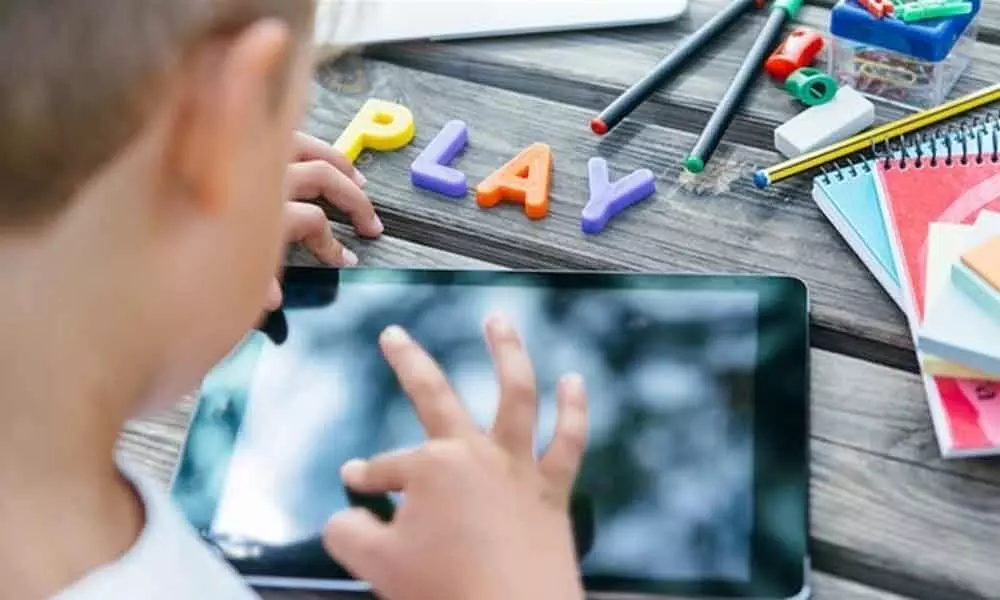Live
- India Bloc On A Shaky Ground
- Centre to celebrate Veer Bal Diwas nationwide
- CM for clear strategy to ensure Southern states get their due
- SCR cancels Sabarimala special trains citing low occupancy
- Vizianagaram: Youth fly drones to highlight bad road
- Vijayawada: Inter-district offender nabbed, Rs 26 lakh loot seized
- Congress cancels all programmes for 7 days in honour of Dr. Manmohan Singh
- Nara Lokesh Pays Tribute to Manmohan Singh, says he is a visionary leader
- 6th World Telugu Writers meet from Dec 28
- Sri City role in strengthening Atmanirbhar Bharat lauded
Just In
Children who have more screen time have lower structural integrity


Studies reveal that screen-based media associated with structural differences in brains of young children.
Washington: A new study documents structural differences in the brains of preschool-age children related to screen-based media use. The study suggests that children who have more screen time have the lower structural integrity of white matter tracts in parts of the brain that support language and other emergent literacy skills.
These skills include imagery and executive function, the process involving mental control and self-regulation. These children also have lower scores on language and literacy measures. The results of the study were published in the journal of JAMA Pediatrics.
The Cincinnati Children's Hospital Medical Center study assessed screen time in terms of the American Academy of Pediatrics (AAP) recommendations. AAP recommendations not only take into account time spent in front of screens but also access to screens including portable devices and content.
"This study raises questions as to whether at least some aspects of screen-based media use in early childhood may provide sub-optimal stimulation during this rapid, formative state of brain development," says Dr John Hutton, MD, director of the Reading and Literacy Discovery Center at Cincinnati Children's and lead author of the study.
"While we can't yet determine whether screen time causes these structural changes or implies long-term neurodevelopment risks, these findings warrant further study to understand what they mean and how to set appropriate limits on technology use."
According to AAP, for children younger than 18 months, avoid the use of screen media other than video-chatting. Parents of children 18 to 24 months of age who want to introduce digital media should choose high-quality programming, and watch it with their children to help them understand what they're seeing.
For children ages, 2 to 5 years, limit screen use to 1 hour per day of high-quality programs. Parents should co-view media with children to help them understand what they are seeing and apply it to the world around them. Designate media-free times together, such as dinner or driving, as well as media-free locations at home, such as bedrooms.
Key Findings
Higher screen quality scores were significantly associated with the lower expressive language, the ability to rapidly name objects (processing speed) and emergent literacy skills.
Higher screen quality scores were associated with lower brain white matter integrity, which affect organisation and myelination -- the process of forming a myelin sheath around a nerve to allow nerve impulses to move more quickly -- in tracts involving language executive function and other literacy skills.
"Screen-based media use is prevalent and increasing in-home, childcare and school settings at ever younger ages," says Dr Hutton. "These findings highlight the need to understand the effects of screen time on the brain, particularly during stages of dynamic brain development in early childhood so that providers, policymakers and parents can set healthy limits.

© 2024 Hyderabad Media House Limited/The Hans India. All rights reserved. Powered by hocalwire.com






